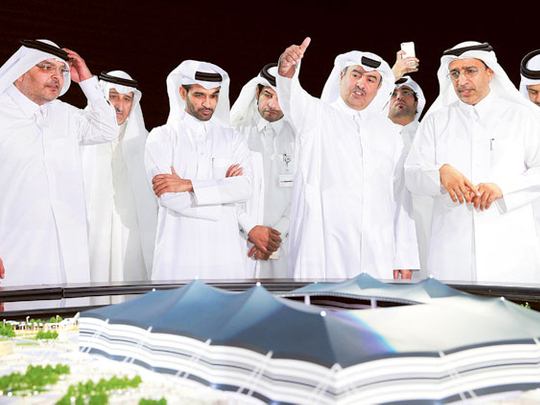
During Qatar 2022, just as Brazil has been this year, Qatar will be in the world’s spotlight for many months, both in the lead up to the competition, during and after its conclusion.
Most recently, Qatar has been publicly criticised for everything from human rights violations to corruption.
So the question remains - how can Qatar, and the numerous brands that associate themselves with the World Cup, give a compelling enough reason for people to believe in and invest in their brand?
The key to Brazil’s triumph lies in how it got the spirit of the competition across, and how this spirit was shaped by the country’s culture, essence and traditions. Social media played a huge role in the 2014 World Cup, where the public had access to everything that was going on, as of course did the media. Therefore it was essential that Brazil was aware of the image it wanted to create.
When a country is in the limelight to the extent that Qatar will be, it must think of its own brand building, and not just the brands related to or sponsoring the event. Qatari organisers must understand what the true culture and personality of the country is not only what they can do as a country, so that brands know how to become a part of the experience and their customers alike.
Before the Brazil World Cup, the event was marred by claims that the infrastructure wouldn’t be completed on time, that the streets were too dangerous and that poverty ruled everywhere. Brazil managed to turn this around and created an event that perfectly reflected its underlying personality: vibrant, energetic and blossoming.
The ‘Rio’ brand became not just synonymous with football but as a unique destination and a trademark brand, and portrayed it in such a way that we all thought that we were a part of the experience.
Qatar needs to achieve exactly this, but with its own distinctive stamp. It will need to demonstrate that the World Cup will allow it to invest in the necessary infrastructure, resources and tourism to create a lasting legacy that stemmed from being World Cup hosts.
So how can other brands channel Qatar’s ‘brand’ into their own marketing and meaning? They will need to focus on how they communicate the personality that Qatar creates, and understand what is at the heart of the country, so that they can become a part of it and involve their brands.
What Qatar must be wary about however is the collateral damage that may accompany the event and its image. The ‘real’ Brazil, the violent and poverty stricken slums, occasionally marred their World Cup. Very little can be hidden from the world’s scrutiny nowadays because of the huge role that social media plays in our lives, and brands, or in this case the ‘Qatar brand’, must be aware of how rumours and information can spread.
Once again, Brazil succeeded in explaining that their investment in infrastructure was an investment in the future of their country and people. Qatar must be crystal clear about its brand and how it wants itself portrayed, or face the consequences of misrepresentation.
The beauty of the World Cup in that it is a chance for the hosts to put themselves on the map as a world leader and to position themselves as they choose.
A brand is created with a purpose, with an idea behind its existence, and Qatar must use exactly the same reasoning if the 2022 World Cup is to be a success. Whether it is a tin of beans, a car or a city, every brand has to have a raison d’etre and through channelling this Qatar’s true purpose will emerge.
Perhaps more importantly, they must also build their brand in this new digital world where nothing is ever missed or overlooked.
— The writer is CEO of global branding agency 1HQ.











